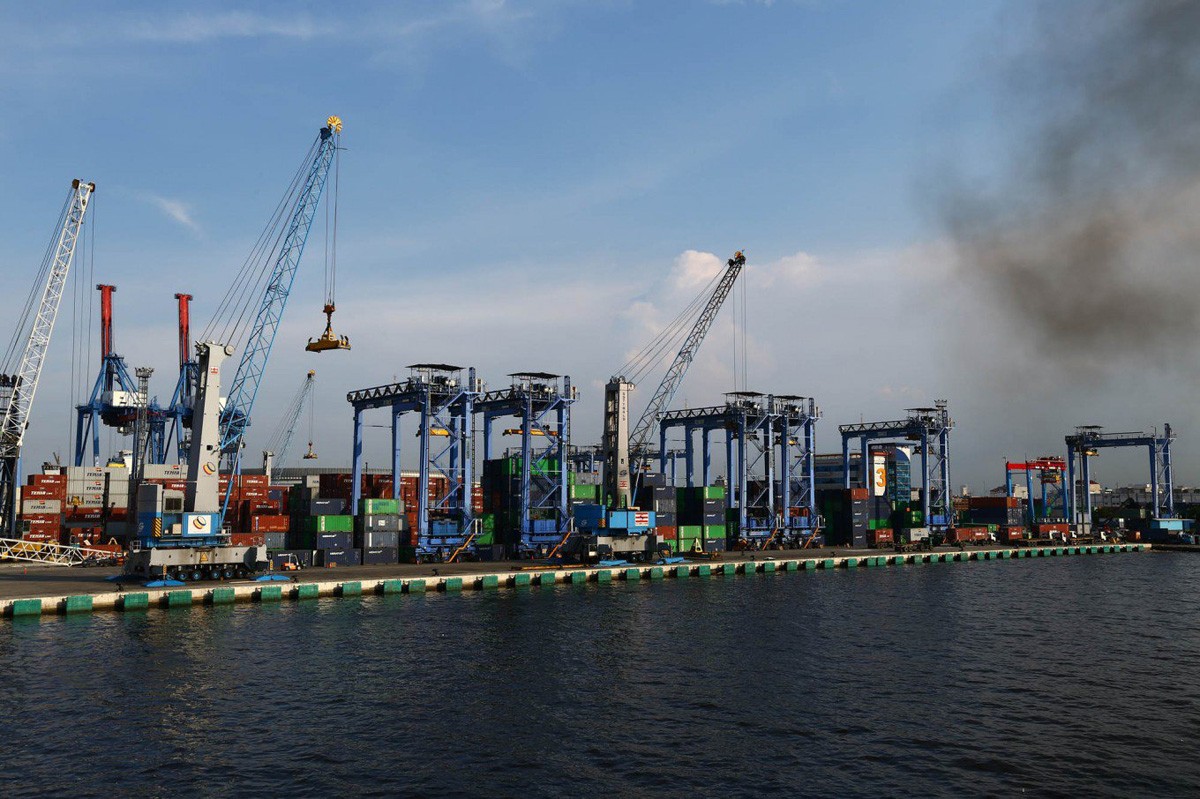Popular Reads
Top Results
Can't find what you're looking for?
View all search resultsPopular Reads
Top Results
Can't find what you're looking for?
View all search resultsCOMMENTARY: Worrying signs for Indonesia’s export growth
Change text size
Gift Premium Articles
to Anyone
I
ndonesia’s monthly exports suffered a sharp decline in July, reversing the upward trend of the previous month. The fall also indicates that the series of economic policy packages introduced since September last year has yet to bring a positive impact on the country’s export performances.
According to the Central Statistics Agency (BPS), Indonesia’s monthly exports plunged 26.67 percent in July to US$9.51 billion, the lowest level recorded since 2009. The plunge occurred following a 12.18 percent increase in June, which many trade analysts previously predicted would become the turning point in the trend of the country’s export growth.
Meanwhile, the monthly non-oil and gas exports, which accounted for about 90 percent of the total, dropped 27.75 percent to $8.52 billion last month. On an annual basis, exports in July dropped by 15.22 percent to $8.52 billion from the export figure recorded in the same month last year, while the cumulative exports in the January-July period reached a total of $79.08 billion, a 12.02 decline year-on-year.
Trade analysts have mostly estimated that the growth momentum in June will continue in the following months, as demand from overseas buyers is expected to increase. However, in reality, the global demand remained weak, with exports from Indonesia’s main buyers such as China, the US and Japan further falling.
In addition to the weak global trade, BPS said that the shorter working time in the month had also contributed to the worsening of the country’s export performance. According to the BPS, exports were seasonally lower in July because of a shorter working period during the month. Last month, there were only 16 effective working days because of the public holidays entailed in the Idul Fitri celebrations.
It is true that for the past several years, monthly trade in July has always been lower than the previous month. But the decline in this July was far lower than 15.5 percent in 2015 and 8 percent in 2014.
With the fewer working days, the fall in the exports could not be avoided, but this should not be taken as the main reason behind the massive drop.
If we observe our bilateral trade with major trading partners, the declines in the monthly exports figures were quite worrying.
Exports to the US, for example, dropped by $633.8 million (39 percent), to Japan by $425.4 million (34.11 percent), to China by $306.3 million (25.07 percent), to Singapore by $240.2 million (29.45 percent), to Malaysia by $159.5 million (30.28 percent), to India by $121 million (15.63 percent), to South Korea by $118.2 million (24.51 percent), to Thailand by $112.6 million (26.71 percent), to Germany by $72.1 million (30.06 percent), to Taiwan by $33.1 million (16.02 percent) and to the Netherlands by $8.5 million (3.31 percent).
The only exports that saw increases were to Australia, by $87.8 million (44.34 percent), and to Italy, by $2.4 million (2.03 percent). Total exports to the 13 main trade partners dropped by 26.31 percent.
The sharp drops in exports to the country’s major trading partners were apparently caused by the inability of the country’s goods, especially industrial products, to compete in the global market. The sharp decline should, therefore, receive special attention from related government offices, especially the industry and trade ministries, which are directly responsible for the country’s international trade.
The sharp drop in July’s exports could also indicate that the government’s series of policy packages launched since September last year has failed to materialize as expected.
As part of efforts to stabilize the country’s economy, President Joko “Jokowi” Widodo’s administration has introduced 12 economic policy packages since September last year.
The economic packages are mostly intended to accelerate the country’s economic recovery through deregulation, improving the ease of doing business, removing business uncertainty and improving legal enforcement.
There are also special incentives given to labor-intensive industries so as to enable them to lower operating costs. Medium-sized and small companies are also given cheaper loans to enable them to increase their production. With such incentives, the government hopes that domestic companies, especially those oriented toward exports, will be able to better compete in the global market.
However, the reality is often much different from the expectation. The series of economic packages has not yet borne fruit. It is therefore imperative for the Investment Coordinating Board (BKPM) and the trade and industry ministries to evaluate and reassess the implementation of the economic policy packages.
In previous newspaper reports, many investors complained that they were unable to benefit from the incentives as a result of the strict requirements being imposed.
Besides this weakness, most of the incentives and the facilities given under these policy packages are often too general, as they are not specifically intended for certain export-oriented sectors. The country’s manufacturing sector, which contributes about 75 percent of total exports, should receive special attention, given its important role in the country’s international trade.
The government has revised this year’s export growth target to 0.1 percent from 2.2 percent previously amid the uncertainties in the global economy. Last year, exports of goods and services dropped by 2 percent.
It is certainly not business as usual, with no signs of recovery yet in the world economy, at least until the end of this year. Extra efforts should therefore be taken to prevent the country’s exports from falling any further.
___________________________________
The writer is a staff writer at The Jakarta Post










